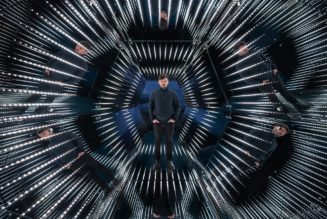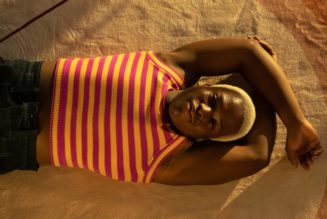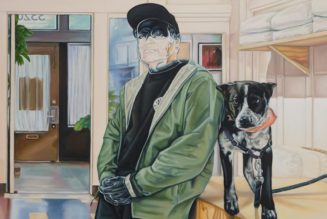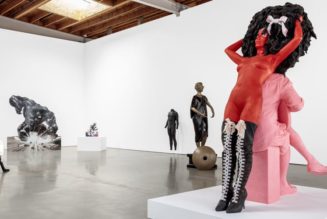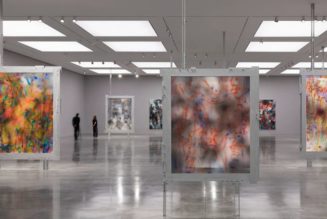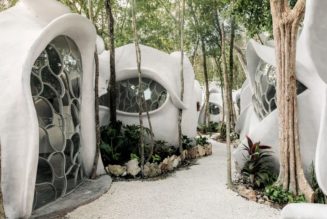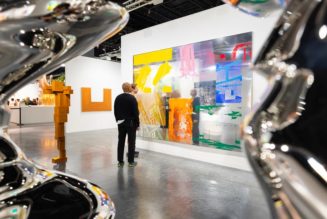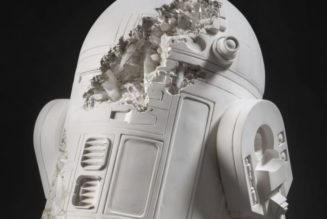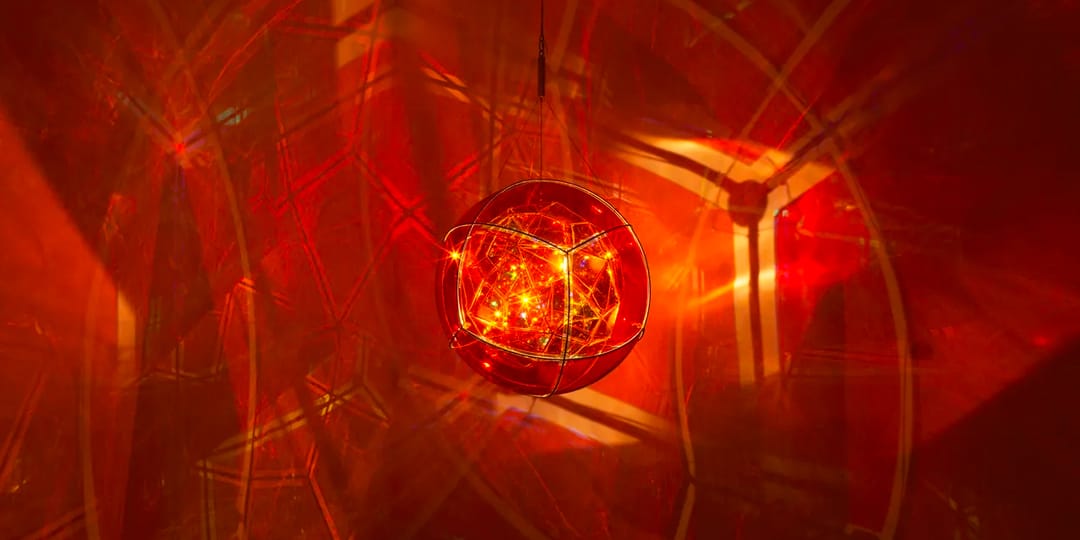
Olafur Eliasson will be the first artist to inaugurate Tokyo’s new multi-purpose space called Azabudai Hills. Located in Minato City, the complex has been designed by Heatherwick Studio and comprises of galleries, such as Pace’s forthcoming location, as well as a school, restaurants, shops and skyscrapers.
The Danish-Icelandic artist’s latest exhibition, A cycle of interconnected nows, is centered around the idea that everything is in motion — from microscopic molecules to galaxies and the universe itself. Beginning at the lobby of the newly built Mori JP Tower, now the largest skyscraper in Japan, Eliasson installed a series of floating spiral artworks made of recycled zinc, “inspired by shifting scales,” he tells Wallpaper*, “looking simultaneously at the macro level, where everything is in constant motion, and at the micro level, where everything consists of tiny building blocks.”
Nearby at the Azabudai Hills Gallery, Eliasson continues to explore natural phenomena as both subject and collaborator. There are paintings on view that were made by using the Qatari sunlight to burn etches into the canvas. “I wanted to draw a connection between these seemingly small works and the large forces behind them,” he added, “just as the permanent installation connects the two scales of cyclical motion and falling, modular geometrical elements.”
Also on view are 15 new artworks, such as a Firefly biosphere (falling magma star), a large red glass ball that refracts unique light patterns against the wall, as well as a vertical sculpture affixed with a fan called The air we breathe. Also made using repurposed zinc, the latter artwork comments on waste incineration. “It’s filtered out of the smoke that in the past would have simply mixed into our atmosphere as air pollution,” Eliasson said. “I like that they create an experience that is not visually perceptible but has a definite presence in the space as wind. So the work has a certain dematerial aspect while also being very much about materials.”
A cycle of interconnected nows opened over the weekend and will be on view in Tokyo until March 31, 2024.

